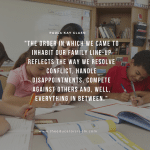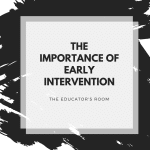[fusion_builder_container hundred_percent=”yes” overflow=”visible”][fusion_builder_row][fusion_builder_column type=”1_1″ background_position=”left top” background_color=”” border_size=”” border_color=”” border_style=”solid” spacing=”yes” background_image=”” background_repeat=”no-repeat” padding=”” margin_top=”0px” margin_bottom=”0px” class=”” id=”” animation_type=”” animation_speed=”0.3″ animation_direction=”left” hide_on_mobile=”no” center_content=”no” min_height=”none”]
I had my eyes really opened today by one of my students who lost his house in the 2012 Oklahoma tornado. We were talking about how the things we are thankful for change as we get older. This young man is 11. He and his family lost EVERYTHING. House. Cars. Belongings. Everything except their lives and their dog. People who haven’t gone through an experience like this seem to discount the idea that the ‘stuff’ was lost, but ‘thank goodness more lives weren’t lost.’ This mentality is definitely a state of mind of those of us who are older and have had more life experiences. Not the mind set of an 11-year-old boy whose world was turned upside down in a matter of minutes, for a long time. As I was going around that class asking kids about what they were thankful for he told me, “Life. Because I now look at each year wondering if it will be my last.” I was left speechless.
The effects that trauma has on kids can last for years to come. Even though this family has just moved into a brand new house, with brand new furniture and brand new ‘stuff’, the horror is still there for this child. He says it will never be ‘HOME’. He still remembers the sounds. He still remembers the smells. He still remembers the amazement of the unheard of devastation that he laid his eight-year-old eyes on. No amount of ‘stuff’ can ever take those memories away. And he realizes that we aren’t guaranteed our next breath, more so than many people four times his age.
Trauma for children can come in many shapes and sizes. As adults we are desensitized to those things that can severely affect kids. We hear about beheadings in the news, see horrible violence on TV, yet hardly even blink anymore. However, traumatic events for children don’t have to even be this type of magnitude to affect their sleeping and eating patterns and anxiety level. Trauma can come in the form of a divorce, a death of a pet, a conflict with a friend or even a seemingly simple change in routine. And we see the results of the trauma manifesting itself as behavior in our classroom.
Behavior is always the result of something going on in a child’s life. When we see kids acting out or becoming more whiny than normal or chattering incessantly when they are normally quiet or going from being outgoing and friendly to withdrawn and grumpy, a red flag should immediately fly. Teachers should be able to identify any change in normal character or behavior in their students, especially those of us who are with the same group of kids the entire day. When those red flags whip us in the face it is our job to take action. Behavior that is not dealt with turns into worse things than worse behavior: it turns into a terribly hurting child.
Develop those relationships with your students. Reach out to them and REALLY get to know them. If behavior changes pull that child aside and TELL them that you notice a difference. Sometimes that’s all the child wants is for someone to acknowledge their hurt.
Teaching without those crucial relationships is just a job.
How do you develop those personal relationships with your students?[/fusion_builder_column][/fusion_builder_row][/fusion_builder_container]





